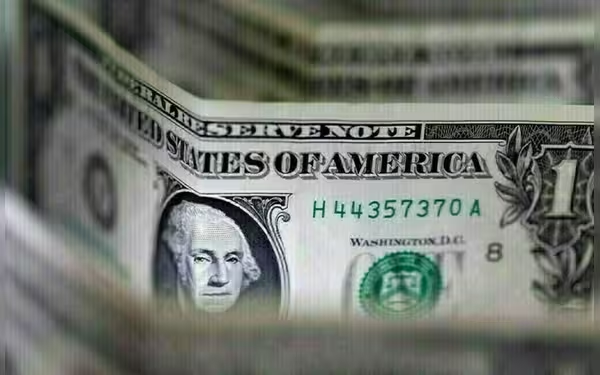Tuesday, July 2, 2024 03:47 PM
US Dollar Faces Decline Amidst Economic Uncertainties
- US dollar weakens against euro due to subdued inflation and weakening economy
- Speculation of potential rate cuts by Federal Reserve impacting currency markets
- Euro strengthens on positive European data, while Australian and New Zealand dollars appreciate
 Image Credits: brecorder
Image Credits: brecorderThe US dollar is facing a significant decline against the euro amidst subdued inflation, weakening economy, and speculation of potential rate cuts. Positive European data has strengthened the euro, while the Australian and New Zealand dollars have also appreciated. Investors are closely monitoring global economic uncertainties and central bank decisions.
The US dollar is experiencing a significant decline against the euro this week, marking its largest weekly drop in two-and-a-half months. This decline is primarily attributed to subdued inflation and a weakening US economy, which are fueling expectations of potential rate cuts. The euro has strengthened by 0.9% against the dollar, breaching key resistance levels and reaching a high of $1.0895 following a slowdown in US inflation.
Recent data indicates that US inflation figures for April, while meeting expectations, were lower than the previous month. This has led to speculation that the Federal Reserve may implement interest rate cuts later in the year, with potential cuts in September and December. Consequently, there has been a surge in stocks and bonds, exerting pressure on the dollar. Moreover, stagnant US retail sales in April and an unexpected decline in manufacturing output have further contributed to the dollar's decline.
Market analysts highlight that beyond inflation, various economic indicators are showing signs of cooling off, prompting investors to sell the dollar. On the other hand, while markets are anticipating rate cuts by the European Central Bank from June onwards, recent positive surprises in European data, such as Germany's better-than-expected economic performance and high investor sentiment, have bolstered the euro.
Elsewhere, the Australian and New Zealand dollars have both appreciated against the US dollar this week. The New Zealand dollar, in particular, has seen a significant 1.7% increase, heading towards its best week of the year. The Australian dollar, currently at $0.6675, retreated from a four-month peak due to unexpected growth in unemployment figures, dampening expectations of a rate hike. Traders are now awaiting the upcoming central bank meeting for the New Zealand dollar, where the official cash rate is expected to remain at 5.5%.
In the cryptocurrency market, bitcoin has surged by 6.6% this week, reaching $65,343. Looking ahead, Chinese retail sales and industrial output data are set to be released, while final European Consumer Price Index (CPI) numbers will be published on Friday.
The fluctuating currency markets and economic indicators are reflecting the uncertainties surrounding global economies. Investors are closely monitoring developments, especially regarding potential rate cuts by central banks and the performance of major currencies. As the week progresses, market participants will continue to assess the impact of economic data releases on currency valuations and market sentiment.













